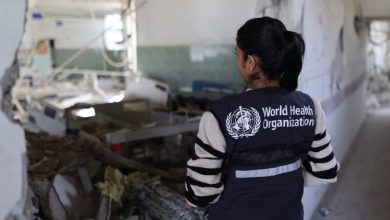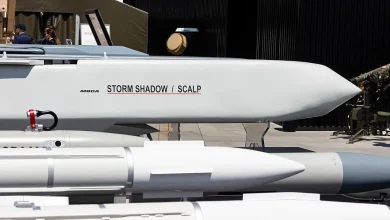
The Israeli military launched air strikes and artillery fire at targets in southern Gaza, dimming hopes for lasting peace from the US-mediated ceasefire, while simultaneously trading blame with Hamas, the Palestinian militant group. These attacks represented the most serious test of the already fragile ceasefire, which initially took effect on 11 October.
Specifically, the military stated that the strikes destroyed tunnels and military buildings in the Rafah area, targeting militants who had opened fire on Israeli soldiers. Israeli Prime Minister Benjamin Netanyahu promised Israel would forcefully retaliate against Hamas attacks targeting its soldiers.
Conversely, Hamas’ armed wing released a statement asserting its full commitment to the ceasefire agreement across Gaza, yet claimed it remained unaware of the Rafah clashes and had not contacted local groups since March. The Al-Qassam Brigades affirmed, “We affirm our full commitment to implementing all agreements, foremost among them the ceasefire across all areas of the Gaza Strip.”
Accusations and Ground Fighting
Meanwhile, Palestinian witnesses separately told Reuters about explosions and gunfire in Rafah and tank fire in the southern town of Abassan near Khan Younis. An airstrike in the central town of Zawayda and subsequent explosions in Deir Al-Balah killed at least five people, according to medics at Al-Aqsa Hospital.
Witnesses in Khan Younis reported hearing a wave of airstrikes launched into Rafah early on Sunday afternoon, while Gaza’s health ministry reported that the Israeli attacks killed at least eight people during the last 24 hours.
Earlier on Sunday, an Israeli military official claimed Hamas had executed multiple attacks against Israeli forces inside Gaza, including a rocket-propelled grenade and a sniper attack against soldiers. The official maintained, “Both of the incidents happened in an Israeli-controlled area…This is a bold violation of the ceasefire.”
Consequently, Defense Minister Israel Katz announced Israel would physically mark the “yellow line” where forces had pulled back under the ceasefire, promising to meet any violation or crossing attempt with immediate fire.
Hostage Bodies and Governance Disputes
Senior Hamas official Izzat Al Risheq reasserted his group’s commitment, but simultaneously accused Israel of repeatedly violating the ceasefire agreement. On Saturday, the government media office in Gaza claimed Israel committed 47 violations since the deal, leaving 38 people dead and 143 wounded. The media office stated that “These violations have ranged from direct shooting at civilians, to deliberate shelling and targeting operations, as well as the arrest of several civilians.”
Overall, the Israeli government and Hamas have traded accusations of ceasefire violations for days, leading Israel to declare the Rafah border crossing between Gaza and Egypt would remain closed indefinitely. Rafah crossing has largely remained shut since May 2024, despite the ceasefire deal demanding increased aid for Gaza, where the IPC global hunger monitor determined hundreds of thousands face famine. Historically, the Rafah crossing functioned as a key conduit allowing humanitarian aid to flow into the enclave during previous ceasefires.
Furthermore, Israel and Hamas remain locked in a sharp dispute over the return of deceased hostages, with Israel demanding Hamas fulfill obligations and turn over the bodies of the remaining 28 hostages. Hamas returned all 20 live hostages and 12 deceased, explaining that the group needs special equipment and effort to recover the remaining corpses buried under rubble.





